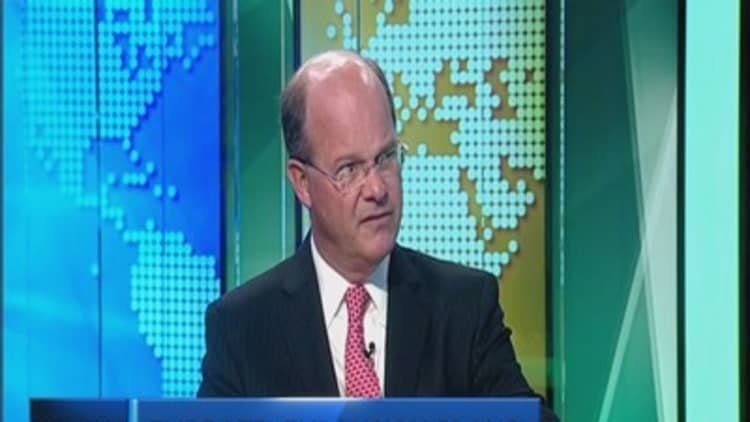The Brazilian real hit a new all-time low on Tuesday after authorities announced a massive austerity package at a time when the economy is shrinking fast.
Reuters
But unlike those euro zone countries that faced similar economic and political straits following the sovereign debt crisis, Brazil's control of its own currency may help it find a way out.
"Really Brazil is in a hole and it's a deep hole and it is going to take many years to get out of that hole. But the situation is quite different to that of Europe," Neil Shearing, chief emerging markets economist at Capital Economics, told CNBC early on Tuesday.

Since the U.S. Federal Reserve's high-profile decision to hold interest rates last week, most emerging market and major currencies have outperformed against the U.S. dollar. The real—together with the Indonesian rupiah—is an exception, with the Brazilian currency reaching a record low of more than 3.99 against the greenback on Monday, before topping 4.06 at one stage on Tuesday. It has fallen by more than 25 percent against the dollar since mid-June, leading Kit Juckes, macro strategist at Societe Generale, to term it "the FX market's least favored country" in a research note on Tuesday.
In addition, Brazilian five-year credit default swaps (CDS) posted one of Monday's worst performances among sovereigns, widening by 31 basis points or 7.9 percent to 426. Widening CDS spreads suggest a rising perception among investors that an entity may default on its debt.
This came after last week's unveiling in Brazil of a $17 billion austerity package for 2016, aimed at plugging a gaping budget hole and restoring investors' depleted confidence in the government. The measures are divided between tax hikes and spending cuts and will likely further knock the popularity of President Dilma Rousseff, who is already facing impeachment calls in relation to a massive corruption scandal.
Meanwhile, the Brazilian economy is shrinking and inflation remains high—a toxic combination known as a "stagflation" that the U.K. suffered in the 1970s. Barclays Research forecasts a sharp 3.2 percent economic contraction in Brazil across 2015 as a whole, with a 1.4 percent quarter-on-quarter seasonally adjusted slump expected in the third quarter. The bank is downbeat for next year as well, forecasting a 1.5 percent contraction in 2016.
Inflation figures published on Tuesday showed trailing 12-month inflation of 9.57 percent, which is more than double the government's 4.5 percent target.
Brazil
"A lot of the headlines today have been about the real touching a record low against the dollar but that is I think actually a good thing because this is the way out for Brazil," Shearing told CNBC.
"The way out is through a weaker currency that helps to rebalance the economy away from domestic and excessive reliance on consumption and perhaps more towards greater investment, encouraging some of that consumption to go into domestic production."
In the meantime, the economic backdrop provides challenges for both international and domestic companies in Brazil. For example, Embraer, an aerospace conglomerate and one of Brazil's biggest companies, has suffered late payments from the government for a major project delivering KC-390 military transport aircraft.
The program is now around 12 months behind schedule, according to Embraer CEO Frederico Curado.
"Of course, the whole situation in the country hurts any company based in Brazil," he told CNBC on Monday.

—By CNBC's Katy Barnato. Follower her @KatyBarnato.

